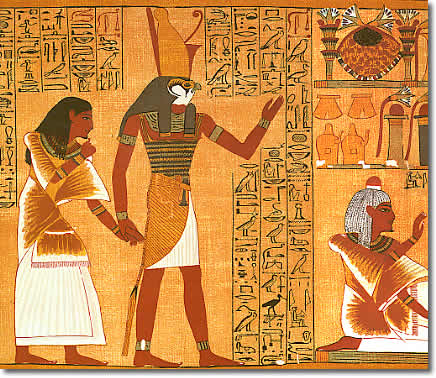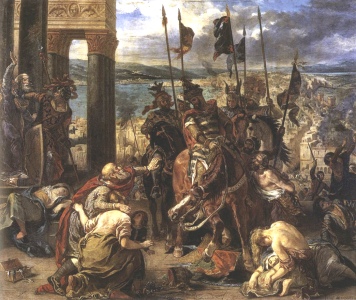After looking at all these different characters and
different elseworlds story lines, I now will briefly look into some of our
world’s history to get some of my own elsewords story lines, but with some
actual history involved.
I will only go through a few of the world’s history and I
will not talk about modern lifestyle or our possible future, as these have been
done in film already such as; The Avengers, The Dark Knight Trilogy, Ironman,
Thor, etc and some are still in production such as; Man of Steel, Ironman 3,
Captain America: Winter Solider, etc.
Ancient Egypt
Ancient Egypt
was a civilization in the Northeast of Africa. It was concentrated along the
lower reaches of the Nile River , in what is now the modern country of Egypt .
Egyptian civilisation coalesced around 3150BC.
The history of ancient Egypt occurred in a series of stable
Kingdoms, separated by periods of relative instability, known as intermediate
periods, these periods consisted of; the Old Kingdom of the Early Bronze age,
the Middle Kingdom of the Middle Bronze age and then the New Kingdom of the
Bronze age.
Egypt was invaded and conquered by several foreign powers,
such as; the Libyans, Nubians, Assyria, Babylonia, Persian rule and Greece, in
the third intermediate period of Egypt and late period. In the aftermath of
Alexander the greats death one of his generals, Ptolemy Soter, established
himself as the new ruler of Egypt .
This Ptolemaic Dynasty lasted in Egypt
until 30BC, when it fell to the Roman Empire
and became a Roman province.
 The success of ancient Egyptian civilisation came partly from
its ability to adapt to the conditions of the
The success of ancient Egyptian civilisation came partly from
its ability to adapt to the conditions of the
Motivating and organising these events was down to a bunch
of selected and elite scribes who were religious leaders and administrators
under the control of a Pharaoh, who ensured the cooperation and unity of the
Egyptian people in the context of an elaborate system of religious beliefs.
 The Egyptians achieved a great many things such as the
surveying and construction techniques used to facilitate the building of
monumental pyramids, temples and obelisks. They also used a system of
mathematics, a practical and effective system of medicine, and agricultural
production techniques with the first known ships, Egyptian faience and glass
technology with new forms of literature and the earliest known peace treaty
with Hittites.
The Egyptians achieved a great many things such as the
surveying and construction techniques used to facilitate the building of
monumental pyramids, temples and obelisks. They also used a system of
mathematics, a practical and effective system of medicine, and agricultural
production techniques with the first known ships, Egyptian faience and glass
technology with new forms of literature and the earliest known peace treaty
with Hittites.
Cerny, J (1975). Egypt
http://en.wikipedia.org/wiki/Ancient_Egypt
Ancient Greece
Ancient Greece Greece Mediterranean Sea .
Classical Greek
culture, especially philosophy, had a powerful influence on the Roman Empire,
which carried a version of it to many parts of the Mediterranean region and Europe , for which reason Classical Greece is generally
considered to be the seminal culture which provided the foundation of modern Western
culture.
The historical
period of ancient Greece
http://en.wikipedia.org/wiki/Ancient_Greece
Bruce
Thornton, Greek Ways
The Roman Empire was the post-Republican
period of ancient Roman civilization, characterized by an autocratic form of
government and large territorial holdings around the Mediterranean in Europe, Africa,
and Asia . The 500-year-old Roman Republic
The first two
centuries of the Empire were a period of unprecedented stability and known as
the Pax Romana otherwise known as the Roman Peace. It reached its greatest
expanse during the reign of Trajan around 98–117 AD. In the 3rd century, the
Empire underwent a crisis that threatened its existence, but was reunified and
stabilized under the emperors Aurelian and Diocletian.
 Christians then
rose to power in the 4th century, during which time a system of dual rule was
developed in the Latin West and Greek East. After the collapse of central
government in the West in the 5th century, the eastern half continued as what
would later be known as the Byzantine Empire.
Christians then
rose to power in the 4th century, during which time a system of dual rule was
developed in the Latin West and Greek East. After the collapse of central
government in the West in the 5th century, the eastern half continued as what
would later be known as the Byzantine Empire.
Because of the
Empire's vast extent and long endurance, the institutions and culture of Rome had a profound and lasting influence on the
development of language, religion, architecture, philosophy, law, and forms of
government in the territory it governed, particularly Europe ,
and by means of European expansionism throughout the modern world.
John Bagnell
Bury, A History of the Roman Empire from its Foundation to the death of Marcus
Aurelius
http://en.wikipedia.org/wiki/Roman_Empire
Middle Ages
The Middle Ages, also known as the Medieval
period, is the period of European history in the 5th to the 15th
centuries, normally marked from the collapse of the Western Roman Empire until
the beginning of the Renaissance and the Age of Discovery. The mediaeval period
thus is the mid-time of the traditional division of Western history into
Classical, Medieval, and Modern periods; moreover, the Middle Ages usually is
divided into the Early Middle Ages, the High Middle Ages, and the Late Middle
Ages.
 In the Early
Middle Ages, depopulation, deurbanization, and barbarian invasions continued
apace. The barbarian invaders formed new kingdoms in the remains of the
In the Early
Middle Ages, depopulation, deurbanization, and barbarian invasions continued
apace. The barbarian invaders formed new kingdoms in the remains of the  During the High
Middle Ages, which began after AD 1000, the population of
During the High
Middle Ages, which began after AD 1000, the population of
The Late Middle
Ages were marked by difficulties and calamities, such as famine, plague, and
war, which much diminished the population of Western
Europe , in the four years from 1347 through 1350, the Black Death
killed approximately a third of the European population. Controversy, heresy,
and schism within the Church paralleled the warfare between states, the civil
war, and peasant revolts occurring in the kingdoms. Cultural and technological
developments transformed European society, concluding the Late Middle Age and
beginning the Early Modern period.
Bauer, Susan Wise (2010). The History of the Medieval World: From the
Conversion of Constantine
Wickham, Chris (2009). The Inheritance of Rome
http://en.wikipedia.org/wiki/Middle_Ages

No comments:
Post a Comment